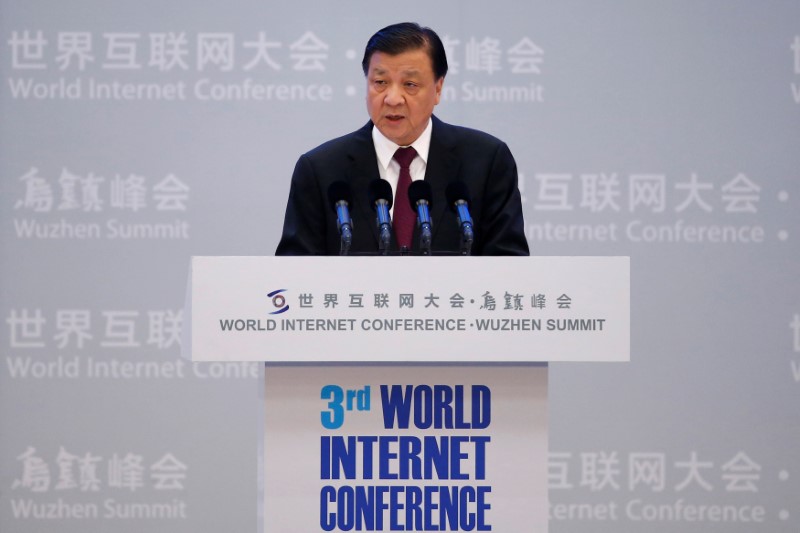BEIJING (Reuters) - China's propaganda chief on Wednesday visited government workers holidaying at the resort of Beidaihe, state media said, in the first hint that an annual conclave there of senior leaders was happening before an autumn party congress.
The once-every-five-year congress of the ruling Communist Party will see President Xi Jinping cement his grip on power and maneuver to place as many of his own people on to the elite Standing Committee, or apex of power in China, as he can.
Traditionally top party leaders visit the seaside town of Beidaihe every summer on a sort of unofficial retreat, where they bash out personnel moves and policy ideas behind closed doors.
This year's Beidaihe meeting, the occurrence of which is often not even confirmed by the party, has extra significance as it will be happening so close to the congress.
Xi and Premier Li Keqiang have not appeared on the main evening news for the last week, when normally they are on almost every day, suggesting they have been in Beidaihe.
In a short dispatch, the official Xinhua news agency said that propaganda chief Liu Yunshan, a member of the current Standing Committee, had been entrusted by Xi to visit "vacationing experts" in Beidaihe, made up of people including scientists. Liu told the experts that science was an important part of the country's overall development, and urged them to make even greater contributions to China, Xinhua said.
Liu was accompanied by Vice Premier Ma Kai and Zhao Leji, head of the party's powerful Organisation Department, which oversees personnel decisions.
Zhao is tipped for possible promotion to the Standing Committee at the congress.
Another Standing Committee member, Yu Zhengsheng, who is the party's fourth ranked leader, showed up in Inner Mongolia on Tuesday for an event to mark 70 years since it became what China calls an autonomous region.
Beidaihe, some two hours east of Beijing by high-speed train, is steeped in party history, though sources with ties to the leadership say Xi is not a fan of the place.
The resort started as a spot for Western missionaries and traders to escape the summer heat in the late 19th century, though few of those buildings still stand.
After the Communist takeover in 1949, it became a venue for leaders to relax with family members and talk in private with peers.

The founder of modern China, Mao Zedong, was particularly fond of the place, and his calligraphy of a poem he once composed while there is featured prominently around town.